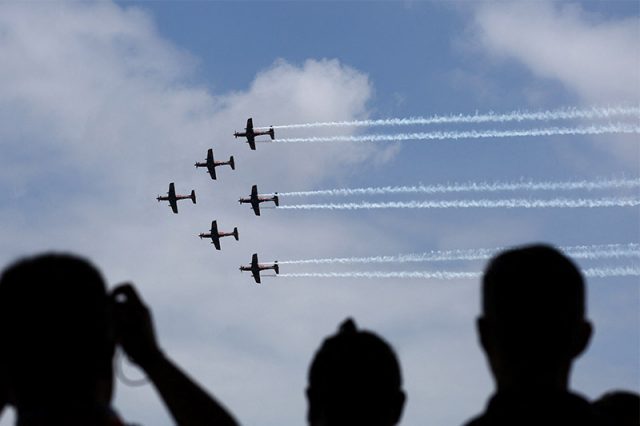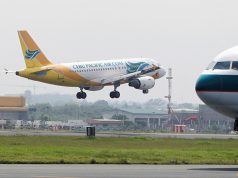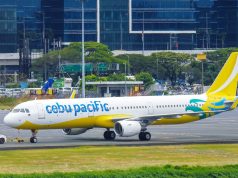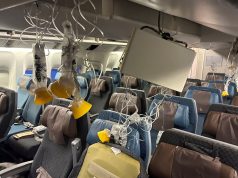
- Singapore Airlines shares fall nearly 10% after results
- Carrier warns of ticket price pressure, rising costs
- Taiwan’s Starlux announces Airbus order
- Engine inspections also pose challenges for airlines
SINGAPORE — A warning from home carrier Singapore Airlines SIAL.SI that ticket prices were coming under pressure as costs are also rising sent its shares down nearly 10% on Wednesday, casting a shadow over the Singapore Airshow.
The Asian airline’s biggest one-day share price plunge since the global travel industry ground to a halt in March 2020 because of COVID-19 came after its December quarter earnings missed market expectations on Tuesday.
It underscored broader aviation industry concerns about supply chain constraints and a more cautious outlook in Asia as China’s international travel recovers from the pandemic at a slower pace than in much of the rest of the world.
At the air show, Taiwan’s Starlux Airlines 2646.TWOplaced an order on Wednesday for five Airbus AIR.PA A350 freighters – with an option for five more – and three A330neo wide-body passenger jets, a day after rivals Boeing BA.N and COMAC of China announced sales of their own.
Starlux wants to become a transit airline for passengers from Southeast Asia to North America and to take advantage of cargo flows from South Asia to North America, CEO Glenn Chai said.
But even as the orders rolled in, Singapore Airlines said on Tuesday that high fuel prices, inflationary pressures and supply chain constraints were presenting challenges to airlines globally.
“Passenger yields continue to come under pressure from increased competition as capacity restoration continues across the industry,” the airline added.
The carrier’s net profit, while still strong, has fallen for two consecutive quarters after reaching a record in the June quarter last year, when it was buoyed by strong post-pandemic summer travel demand.
“Last year was pent-up demand, revenge travel,” Mabel Kwan, a Singapore-based managing director at Alton Aviation Consultancy, said on the sidelines of the air show. “What is going to take over is longer term macroeconomic fundamentals.”
“The results are looking past the pandemic recovery, fundamentals taking over a little bit, a little bit of tapering to normalisation from that high growth that we had last year,” she added.
The Singapore carrier’s warning followed Air New Zealand’s AIR.NZ on Monday flagging weaker-than-expected results in the six months through June because of challenges from engine maintenance requirements, economic and inflation risks, early signs of softness in domestic demand and intense competition on U.S. routes.
U.S.-China flight capacity remains more than 75% below pre-pandemic levels this month, according to aviation data provider OAG, with services being restored slowly amid tensions between the governments. In the meantime, U.S. carriers have sent more long-haul aircraft to Australia and New Zealand, pressuring fares in those markets.
Other challenges for airlines include the need to ground some planes for engine inspections to check for potentially flawed components.
Philippine low-cost carrier Cebu Pacific CEB.PS has 10 Airbus A320neo family planes out of service as workers check RTX RTX.N subsidiary Pratt & Whitney’s GTF engines, its chief executive Michael Szucs said on the sidelines of the air show.
Air New Zealand, which also uses the engines, said the inspections would cost it NZ$35 million ($21.64 million) in the current half, including the cost of short-term leased aircraft and adding contact centre resources for affected customers.
($1 = 1.6171 New Zealand dollars)
— Reporting by Lisa Barrington, Brenda Goh and Joe Brock; Writing by Jamie Freed. Editing by Gerry Doyle









